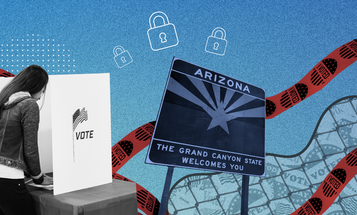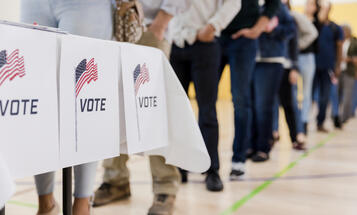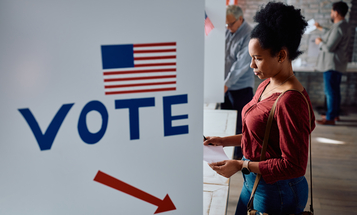
Kentucky Restores Voting Rights for Returning Citizens
Last week, Kentucky Governor Steve Beshear issued Executive Order 2015‑871, which restores the right to vote for citizens with previous non‑violent felony offenses. For those who have fully completed their sentences (which includes probation and parole), upwards of 140,000 Kentuckians can this week regain full voting status, and as many as 30,000 more will have their rights restored over time, according to estimates calculated by the Brennan Center.
Before this action, Kentucky was one of three states—the others being Florida and Iowa—that permanently barred ex‑felons from ever voting again, save for the right being individually restored by those states’ governor and/or clemency board. Kentucky now joins a growing list of states that have taken steps to re‑enfranchise returning citizens, amplifying a national conversation about the best practices for properly serving ex‑prisoners as they re‑enter civilian life.
Moreover, Governor Beshear’s order is reflective of the bi‑partisan support from Kentucky legislature regarding the issue of restorative justice more generally; recent legislation has yielded broad support across both major parties. The major caveat is that Mr. Beshear finishes his term in about two weeks, and his replacement Matt Bevin has the power to rescind this order upon taking office in January. However, given the favorability of these changes among state legislators, as well as the initial positive response from Bevin’s transition team, there is the possibility that such an action will not happen.
The fact that a state with a strong conservative history such as Kentucky’s can move affirmatively on the issue of voting rights for returning citizens should serve as an important signal for other states that the time to move forward is now. Kentucky’s work certainly is not done, however. Permanent disenfranchisement laws are written into its state Constitution; also, other states have taken the additional step of restoring voting rights for ex‑felons immediately following an individual’s discharge from prison as opposed to the completion of probation or parole. Maine and Vermont do not rescind the right to vote for any felons at any time.
Besides the need for Kentucky and other states to codify changes through the legislative and/or constitutional process, some additional steps can also be taken to engage returning citizens and help end the current system of de facto disenfranchisement. The following can and should also happen, either legislatively or upon the order of a state’s chief elections official:
- Department of Corrections agencies should be designated as voter registration agencies under the requirements of the National Voter Registration Act of 1993 (NVRA), which so far only Rhode Island and the District of Columbia do. This would require any department or agency that interacts with a returning citizen upon the time that his or her voting rights are restored to provide a full array of voter registration services, including 1) supplying a proper notification of rights restoration—not only upon release, but also to individuals whose rights have been restored with a ten-year window; 2) distribution of a voter registration application; 3) assistance in filling out the application, as needed; and 4) transmittal of the completed application to the appropriate election officials. States can also take these four steps without needing the NVRA designation.
- State Departments of Elections should automatically reactivate the registrations of returning citizens who were registered to vote prior to incarceration, by designating their records as “inactive” within the appropriate voter registration databases, and switching them to “active” status upon the completion of their sentences.
- Probation and parole agents should be required to provide up-to-date addresses for individuals whose civil rights have been recently restored to election authorities.
- Individuals who are jailed for non-felony offenses or are awaiting trial should receive all information and access necessary to cast an absentee ballot.
Additionally, corrections agents, elections officials, and other voter registration agency staff should be correctly trained to provide the appropriate voter registration services to returning citizens. Many of these individuals are grossly informed about how restoration laws and regulations apply to their work. This group should include officers at public assistance agencies, who are likely to come into regular contact with returning citizens.
Hopefully, the great news out of Kentucky will not only encourage other states to restore voting rights but inspire states that have already taken action to push the needle even further.



